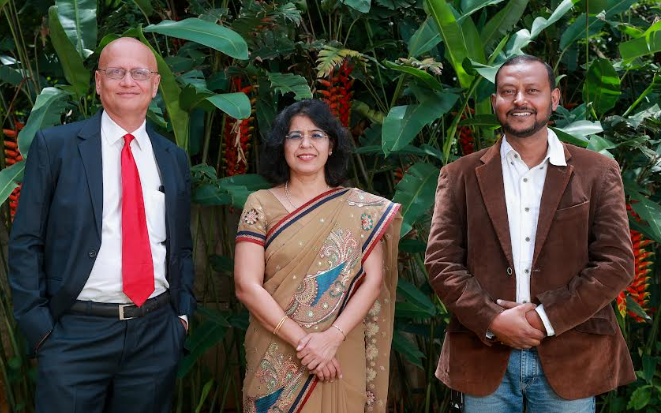Eyestem Raises Funds to Advance Eyecyte-RPE™ Through Phase 2 Clinical Trial and Towards US IND

India, 11th August 2025: Eyestem Research Pvt Ltd has raised funds in a significantly oversubscribed funding round to support the next stage of development for its investigational retinal pigment epithelial (RPE) cell therapy, Eyecyte-RPE™.
The capital will enable completion of the ongoing Phase 2 clinical trial in India and support preparations for filing an Investigational New Drug (IND) application with the US Food and Drug Administration (FDA).
“Strong participation by internal investors and addition of a strategic investor, underline the shared belief in Eyestem’s long-term vision of creating an innovative cell therapy platform providing scalable solutions for incurable diseases worldwide. This $10 million fundraise will support the next leg of development and strengthen the foundation for global expansion. We continue to prioritize rigorous clinical progress and the capabilities needed to ensure global patient access to this therapy,” said Dr. Jogin Desai, Founder and CEO, Eyestem.
In a joint statement, Mr. Raju Barwale, Chairman, Mahyco and Mr. Sandeep Singh, Managing Director, Alkem Laboratories Ltd, added, “ Eyestem’s pioneering treatment is delivering remarkable outcomes that set a new benchmark in ophthalmic cell therapy. The results observed in Phase 1 not only demonstrate promising efficacy compared to other ongoing global trials but also validate India’s potential as a leader in advanced cell therapy innovations. We are privileged to support a breakthrough that has the potential to redefine treatment outcomes for millions suffering from dry AMD.”
Eyecyte-RPE™ is being developed for patients with geographic atrophy (GA) secondary to dry age-related macular degeneration (dry AMD). In the recently concluded Phase 1 trial in subjects with advanced GA and severe vision loss, the therapy showed a strong safety profile with no serious adverse events and early signs of clinical benefit, with an average improvement of 15.8 letters for six subjects at the end of six months and an average improvement of 11 letters in the first two subjects over a one year period. The upcoming Phase 2 trial will further assess the efficacy and safety of the product in a larger group of subjects with moderate GA and vision loss.
The company has submitted its Phase 1 clinical study report to the Central Drugs Standard Control Organisation (CDSCO) and is awaiting approval to initiate Phase 2.